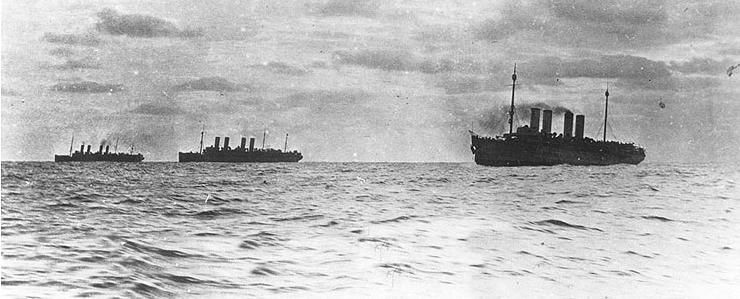Dave Shoup
Banned
Aug 17, 1955 hours. SMS Prince Rupert, Prince Rupert Harbour.
Officers stood on the Princess Charlotte’s port bridge wing, looking into the fog with binoculars. They turned to watch the Prince Rupert approach, then startled as she pulled alongside and ground to a stop against their ship’s side, without even the courtesy of lowering bumpers. When armed sailors started vaulting over the rail, they ran from the bridge. The boarding party was thin, what with the number of wounded that Prince Rupert’s crew had suffered, and those that remained manning the guns covering the boarding. Still, they were unopposed, and quickly took control of the ship.
Von Spee stood at the gangplank to the wharf. Some of the Princess Charlotte’s crew were running down the wharf. It was too late to catch them.
“They will sound the alarm in the town within minutes,” he said. “We might as well release the lot,” he said to one of his petty officers, who was leading the detail guarding the crew and few passengers who had been rounded up in a search of the ship. They were lined up in a row on the lower promenade deck. Deck crew in blue uniforms, and machinery space crew in overalls, and a couple of dozen passengers in various states of dress and undress. One sheepish looking man and woman were wearing blankets.
“Go on, you are free to go,” he said to the assembled passengers and crew. He said to his petty officer, “Have the other prisoners brought as well. We can get rid of all those extra mouths.” Looking like they were still in a state of disbelief, the passengers and crew of the Princess Charlotte, filed down the gangplank onto the wharf.
The wharf was dominated by a one long peaked-roof warehouse, with Grand Trunk Pacific – Prince Rupert painted on the front. Behind were lines of railway tracks, with clusters of freight cars here and there. At the left side of the dock, to the north, was a wooden ramp wide enough for three wagons abreast, built like a trestle, that led over the tracks and up to the level of the main part of the city. On the other side of the tracks were two multi-story square buildings. One said F.G. Dawson – Fruit and Produce – Wholesale Grocers, the other Kelly Douglas & Co. Ltd. – Wholesale Grocers – The Home of Nabob Brands, up a four story façade.
Beyond, was a dirt bank with exposed rock outcroppings, and a mess of giant stumps. Just visible through the fog were some ornate stone and brick office buildings. The effect, thought Von Spee, was as if a few blocks of San Francisco had appeared in the middle of Anyox. This collision of blasted wilderness and metropolis seemed to be how they did things in Canada.
“Ready the three worst of our wounded for transport. I want to speak to the militia and fisheries officers before we release them.”
https://searcharchives.vancouver.ca...9e0c85-8aee-4f0d-b587-6bf89e94b481-A30018.jpg
Did they at least let the happy couple get dressed?
Just wanted to say again, this is a story that has been very enjoyable to read. Please continue.
And this is tagline-worthy:
This collision of blasted wilderness and metropolis seemed to be how they did things in Canada.
